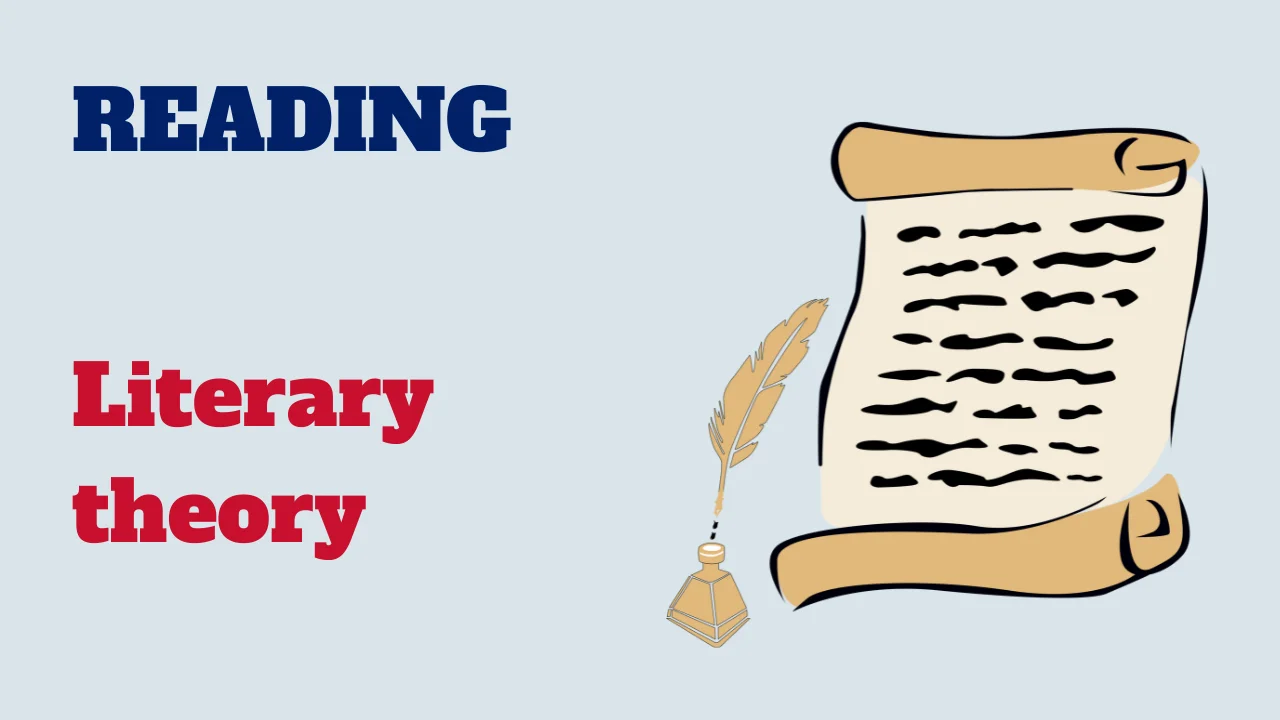Welcome to another reading activity about literary theory. Literary theory encompasses the systematic study of literature and the methods for analyzing literary texts. It emerged as a distinct field in the 20th century, drawing from ancient philosophical traditions and evolving through debates and diverse theoretical approaches.

This reading explores the historical roots, key questions, and major schools of literary theory, shedding light on its interdisciplinary nature and its role in interpreting meaning in literature.
Text: Literary theory
Literary theory is a diverse field of study that examines the methods, principles, and tools for interpreting texts. It serves as a framework for understanding literature’s multiple dimensions and offers various perspectives on how to analyze and appreciate literary works. Rooted in philosophy, sociology, psychology, and linguistics, literary theory helps readers and critics explore deeper meanings and societal implications within texts.
The history of literary theory dates back to ancient times, with Aristotle’s “Poetics” being one of the earliest works that systematically analyzed literature, focusing on genres, plot structures, and the elements of tragedy. During the 19th century, formalism and New Criticism emerged, emphasizing close reading and the intrinsic features of texts, such as structure, imagery, and symbolism, rather than external contexts like the author’s biography or historical background.
The mid-20th century witnessed the rise of various theoretical movements that expanded the scope of literary analysis. Structuralism, influenced by the linguist Ferdinand de Saussure, viewed literature as a system of signs and sought to uncover the underlying structures that govern texts. Post-structuralism, led by thinkers like Jacques Derrida and Michel Foucault, challenged the notion of fixed meanings and emphasized the instability of language and the role of power dynamics in shaping interpretation.
Marxist theory, based on the works of Karl Marx, examines literature through the lens of class struggle and economic power. It considers how texts reflect, reinforce, or challenge societal ideologies. Feminist literary theory, emerging in the 1970s, critiques the representation of gender and advocates for the recognition of women’s voices and experiences in literature.
Other significant approaches include psychoanalytic theory, which explores the influence of unconscious desires and anxieties on literary creation and interpretation, and postcolonial theory, which addresses the impact of colonialism on literature and seeks to recover marginalized voices.
In contemporary literary studies, these theories often intersect, offering multifaceted approaches to texts. By applying different theoretical lenses, scholars and readers can uncover new layers of meaning, challenge traditional interpretations, and engage with literature in a more profound and critical manner. Literary theory thus enriches our understanding of literature, making it a dynamic and continually evolving field.
Comprehension questions
Literary theory, as a systematic study of literature and methods for analyzing texts, has a rich history spanning ancient civilizations to modern academia. By exploring questions of interpretation, meaning, and method, literary theory continues to shape our understanding of literature and its significance in society.



